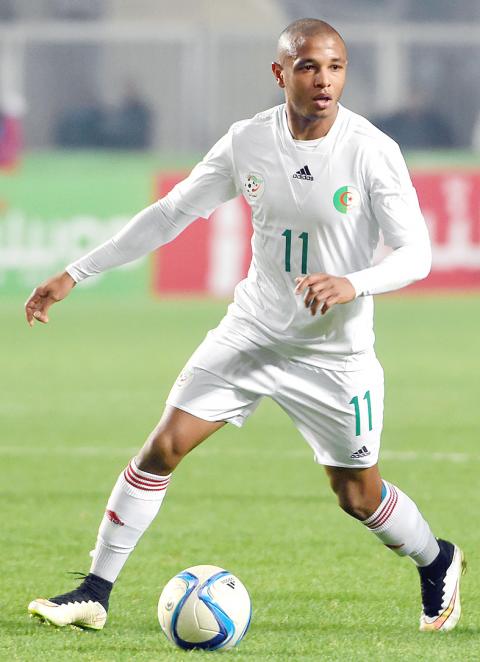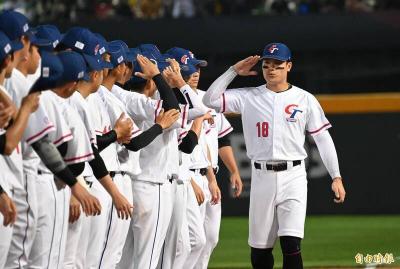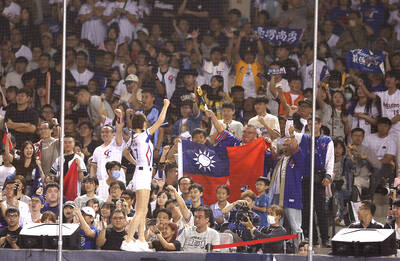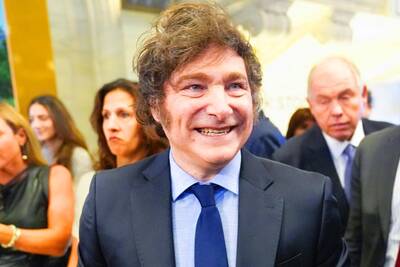The Africa Cup of Nations finally gets underway on Saturday after a controversial buildup to the 30th edition, which included a hasty late switch of hosts to Equatorial Guinea in the wake of concerns over the Ebola virus.
Sixteen nations again line up for the biennial continental championship, seeking Africa’s top sporting prize at the tournament, which runs through Feb. 8.
Few previous competitions have had such a dramatic backdrop with the hosting of this year’s finals being switched two months ago after Morocco asked for a postponement in the wake of the spread of the Ebola virus in west Africa.

Photo: AFP
That request precipitated a crisis that left the tournament having to be organized almost from scratch in a few weeks.
Fears that traveling fans could spread Ebola and damage Morocco’s tourism industry were seen as alarmist by the Confederation of African Football (CAF), who rejected the request and then stripped Morocco of their hosting rights.
From a nation with plentiful resources, who have previously bid to host the World Cup, the Africa Cup of Nations is now being played in one of the continent’s smallest and most enigmatic nations.
Equatorial Guinea is a family-ruled former Spanish colony, which has newfound oil wealth and is reveling in rescuing Africa’s most eagerly anticipated sporting event.
It was the only nation willing to step in at the last moment, saving the finals from being moved to Qatar.
It is a tournament that this time has no clear favorites and in which almost all the teams will believe they can emerge as champions at the end of the three-week event.
Algeria, who reached the second round at last year’s World Cup in Brazil, are Africa’s top-ranked team and would have been a firm favorite were the event still taking place in Morocco.
So too would Tunisia, who were impressive in an unbeaten qualifying run in a preliminary group competition that lasted three months from September to November last year.
However, north African teams rarely get into their stride in the difficult conditions of central Africa.
Holders Nigeria did not qualify, but there is still the perennially strong challenge from the west African region with Ghana, Guinea, the Ivory Coast, Mali, Senegal and Burkina Faso, who were surprise runners-up in South Africa two years ago.
Mali have won the bronze medal at the last two tournaments and Ghana have played in the last four semi-finals.
Senegal, who will have one of the strongest squads, have never won the Africa Cup of Nations, but arrive with top credentials.
The Ivory Coast have often been favorites, but crashed out at the past five tournaments, unable to add to their one success in 1992. This time the Ivorians, now without their talismanic striker Didier Drogba, stumbled through the qualifiers.
It could be a nation close to the hosts that win.
Neighbors Cameroon have enjoyed a remarkable resurgence since their controversial World Cup in Brazil.
Congo, the Democratic Republic of the Congo and Gabon also offer a strong central African presence, while South Africa and Zambia are the only two sides from the south of the continent.
Tiny Cape Verde Islands return after their shock run to the quarter-finals two years ago and they are even stronger this time with the potential to provide more surprises.
The tournament is scheduled to be played at four venues.
Stadiums in Bata and Malabo were extensively renovated for the co-hosting of the 2012 finals. Since then, smaller venues have been built in the towns of Ebebiyin (8,000 seats) and Mongomo (15,000 seats) on the far eastern border of the nation.
The latter is made up of an island in the Atlantic Ocean, where the capital Malabo is situated, and a block of real estate on the African mainland where Groups A, B and C are to be hosted.
Bata is set to stage the opening match and the final.
Senegal sent out an ominous warning of their potential in the competition with a 5-2 win over Guinea in a pre-tournament warm-up on Tuesday.
Dame Ndoye scored twice in the first half and Kara Mbodj, Alfred Ndiaye and Moussa Konate added to the tally in the second half in Morocco where both nations have been preparing for the tournament.
Senegal were 4-0 up before Guinea cut the deficit with a Kevin Constant penalty and Ibrahima Conte got the final goal.
Senegal will compete in Group C against Algeria, Ghana and South Africa, while Guinea are in Group D where they face Cameroon, the Ivory Coast and Mali.

The qualifying round of the World Baseball Classic (WBC) is to be held at the Taipei Dome between Feb. 21 and 25, Major League Baseball (MLB) announced today. Taiwan’s group also includes Spain, Nicaragua and South Africa, with two of the four teams advancing onto the 2026 WBC. Taiwan, currently ranked second in the world in the World Baseball Softball Confederation rankings, are favorites to come out of the group, the MLB said in an article announcing the matchups. Last year, Taiwan finished in a five-way tie in their group with two wins and two losses, but finished last on tiebreakers after giving

Taiwan suffered its first defeat of the 2024 World Baseball Softball Confederation (WBSC) Premier12, losing to defending champion Japan 3-1 at the Taipei Dome last night. Japan’s victory put Taiwan’s score at two wins and one loss in WBSC Premier12 championship Group B play. In the top of the first inning, a sacrifice fly from Japanese batter Shota Morishita allowed Masayuki Kuwahara to score a run on Taiwan’s starter Chen Po-ching (陳柏清). Taiwan’s attempt to catch up in the bottom of the first ended to no avail and an uneventful second inning saw the score

Taiwan scored two three-run homers in an 11-3 blowout win over Australia at the Taipei Dome last night to advance to the Super Round of the 2024 World Baseball Softball Confederation (WBSC) Premier12 tournament. Fresh off a defeat at the hands of defending Premier12 champion and Group B winner Japan the previous day, Taiwan’s offense came out slugging against Australia from the off. After taking a walk to first base, Taiwan’s Chen Chieh- hsien (陳傑憲) then stole second before Tseng Song-en (曾頌恩) drew a walk to first in the top of the first inning. Chen then

A debate over the soul of soccer is raging in FIFA World Cup holders Argentina, pitting defenders of the social role of the beautiful game against the government of libertarian Argentine President Javier Milei, who wants to turn clubs into for-profit companies. Argentina, which gave the world Diego Maradona and Lionel Messi, is home to some of the world’s most devoted soccer fans — a fact attributed by supporters like Gabriel Nicosia to the clubs’ community outreach. Nicosia is a lifelong supporter of San Lorenzo, a more than 100-year-old first division club based in the working-class Buenos Aires neighborhood of Boedo where